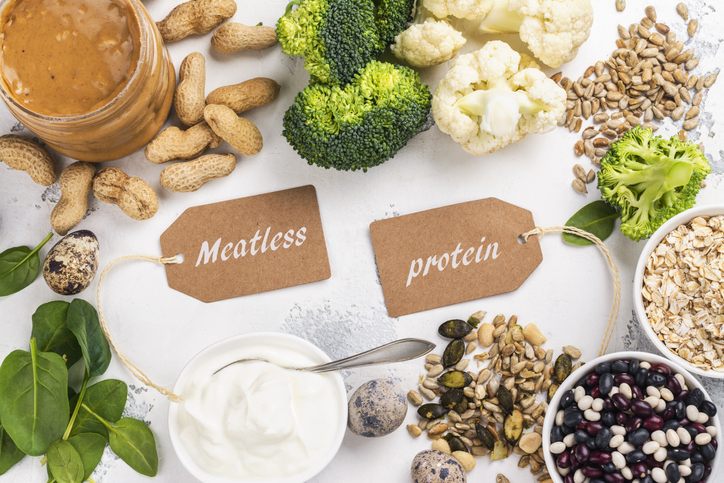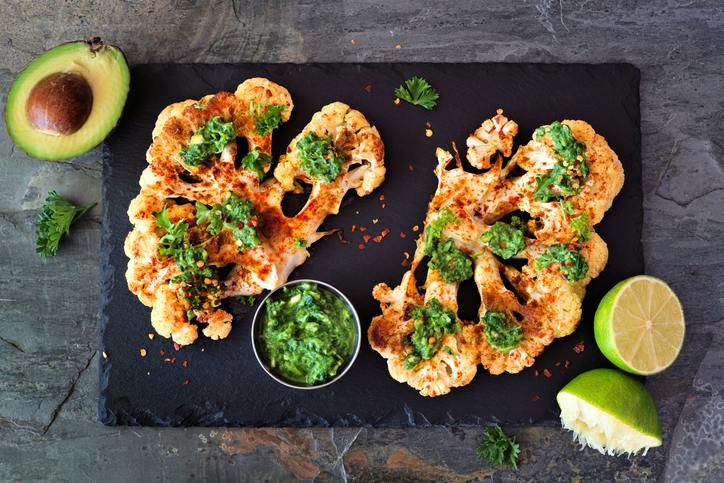What is “Reducetarianism,” and Should You Practice It?

By Joy Stephenson-Laws, J.D., Founder
What and how we eat is very complex. Some people practice intermittent fasting. And, of course, some identify as vegan, vegetarian, ovo-vegetarian (excludes all animal foods except eggs), pescatarian and omnivore (eats both plant and animal foods). There is even a flexitarian diet, which is essentially a person who eats plant-based the majority of the time but occasionally eats animal foods. Tennis icon Venus Williams calls herself a “chegan” (a vegan who “cheats” from time to time with meat and other animal foods).
“I try to make the majority of my meals raw and vegan, but I’m only human and am known to cheat a little bit. I joke that I’m a ‘chegan’ because sometimes I’ve been known to stray,” Williams said, according to this Women’s Health article.
The diet a person chooses to follow can be the result of taste preferences, health reasons, ethics, environmental reasons or “all of the above.” If there’s one thing we can count on, it’s that diet is an evergreen topic of discussion and probably always will be.
And if all of these different ways to identify the way you eat are not enough, I have another one to add to this list - reducetarian.
Apparently, the reducetarian movement was started a few years ago by a young man named Brian Kateman. There is an interesting history and message about this movement (which you can read about in detail here), but essentially what a reducetarian does is reduce their consumption of animal foods.
“By no means revolutionary, but most certainly a do-better way of eating with the environment in mind, reducetarianism recognises that there is no one-size-fits-all when it comes to plant-based eating. And rather than asking you to completely eradicate meat and dairy (like its good friend, veganism), it simply asks you to reduce your intake,” according to one report.
How is this different from a flexitarian or "chegan?"
“While flexitarians primarily eat plants with the occasional inclusion of meat, eggs, and dairy, reducetarians mindfully and gradually reduce their consumption of these animal products with respect to their own diet,” according to The Reducetarian Foundation.
I like this approach, because it can be very intimidating and not always feasible for someone to completely eliminate animal products from their diet. Furthermore, drastically changing your diet and eliminating major food groups can lead to nutritional deficiencies if not done under the guidance of a competent healthcare professional.
Many Americans can certainly afford to eat less meat (especially processed meat) and other animal foods (not only for the sake of the planet but also for their health). Going meatless just one day a week for a year (so that’s 52 days total) may reduce your risk for certain diseases including cancer, heart disease and more.

A recent study published by BMC Medicine took a look at the meat consumption of 472,000 adults ages 40 to 70. The researchers assessed how often they ate meat (processed meat, beef, lamb, pork, chicken, and turkey) on a weekly basis or if they avoided meat completely (were vegan, vegetarian or pescatarian).
“They found that 52% of the people ate meat more than five times per week, and 44% ate meat five or fewer times; 2% ate fish but no meat, and another 2% were vegetarian or vegan,” reports Harvard Medical School, in their discussion of the study.
It’s important to note that many Americans eat meat every day (often more than once a day).
“Researchers then followed the participants for 11 years to see who developed cancer. They discovered that overall cancer risk was 2% lower among people who ate meat five times or less per week compared with those who consumed more. The risk was 10% lower among those who ate only fish, and 14% lower among vegetarians and vegans.”
Furthermore, they found evidence which suggested that people who ate meat no more than five times per week had a 9% lower risk of colon cancer compared to those who ate meat more often. Risk of prostate cancer was also 20% lower with men who only ate fish and 31% lower among vegan and vegetarian men.
I am not trying to push a vegan or vegetarian diet on anyone. But if you eat a lot of meat, I think it could be beneficial to reduce your intake.
How to reduce your meat consumption.If reducing your intake of animal foods in generals sounds overwhelming and intimidating, here are a few tips:
- Stop making meat the main course. The real star of your plate should be nutrient-dense veggies. So instead of having steak with a side of cauliflower, have cauliflower with a small side of steak. Remember, an actual serving of meat should be no larger than a deck of cards.
- Go for plant-based milks instead of regular bovine milk. There are so many options!
- Try doing Meatless Monday with your family or atleast one day of the week where you eat vegetarian or vegan. There are so many awesome recipes that are readily available online.
As always, consult with your doctor or a competent healthcare professional when it comes to making drastic changes to your diet.
Feel free to share your favorite plant-based dishes or how you reduce animal foods in your diet.
Enjoy your healthy life!
The pH professional health care team includes recognized experts from a variety of health care and related disciplines, including physicians, attorneys, nutritionists, nurses, and certified fitness instructors. This team also includes the members of the pH Medical Advisory Board, which constantly monitors all pH programs, products, and services. To learn more about the pH Medical Advisory Board, click here.







